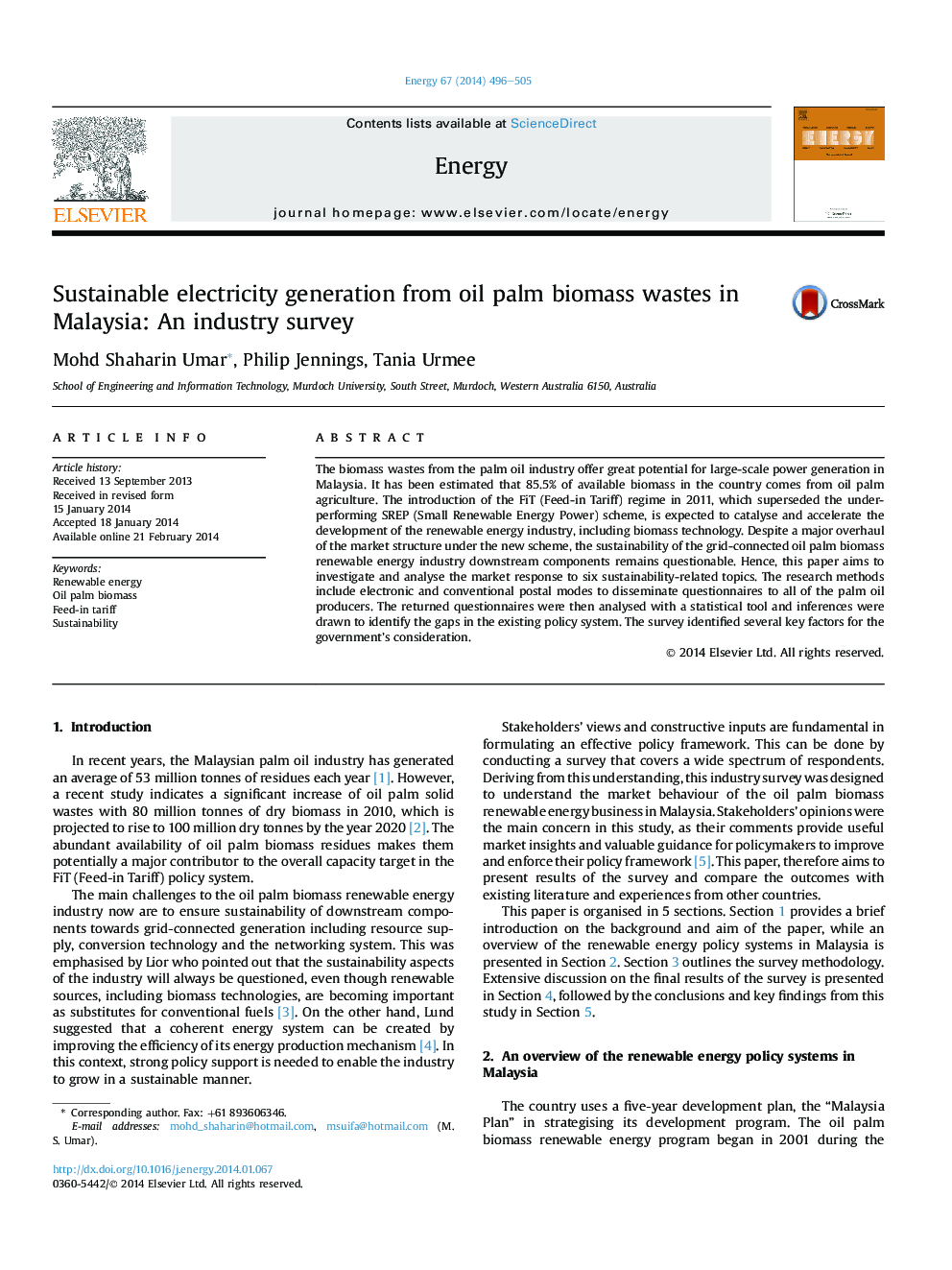| Article ID | Journal | Published Year | Pages | File Type |
|---|---|---|---|---|
| 1732579 | Energy | 2014 | 10 Pages |
•Establishing a fuel collection hub.•Centralising a technology hub facility.•Smart-partnership collaboration for building a large scale biomass plant.•Adopting decentralised generation.
The biomass wastes from the palm oil industry offer great potential for large-scale power generation in Malaysia. It has been estimated that 85.5% of available biomass in the country comes from oil palm agriculture. The introduction of the FiT (Feed-in Tariff) regime in 2011, which superseded the underperforming SREP (Small Renewable Energy Power) scheme, is expected to catalyse and accelerate the development of the renewable energy industry, including biomass technology. Despite a major overhaul of the market structure under the new scheme, the sustainability of the grid-connected oil palm biomass renewable energy industry downstream components remains questionable. Hence, this paper aims to investigate and analyse the market response to six sustainability-related topics. The research methods include electronic and conventional postal modes to disseminate questionnaires to all of the palm oil producers. The returned questionnaires were then analysed with a statistical tool and inferences were drawn to identify the gaps in the existing policy system. The survey identified several key factors for the government's consideration.
